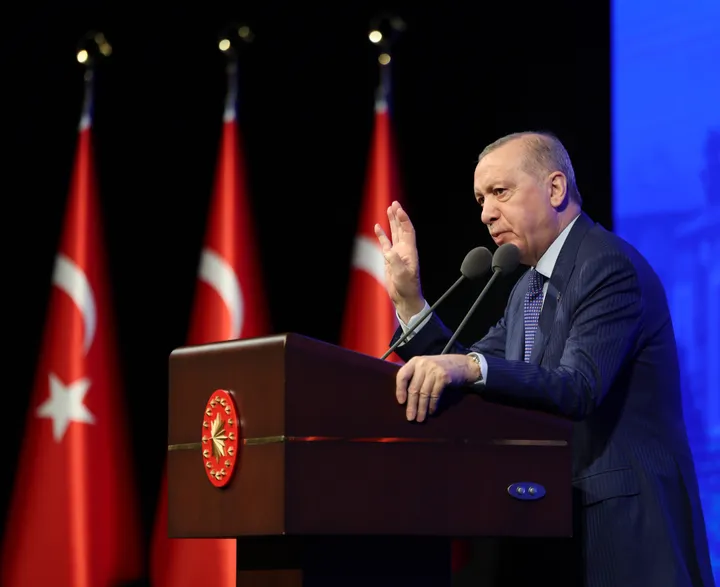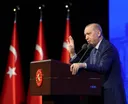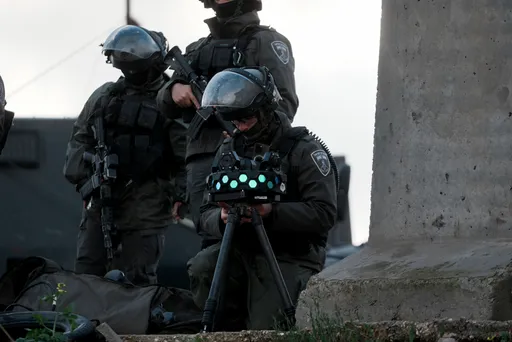Secretary of State Mike Pompeo has became the first top US diplomat to visit an Israeli settlement in the occupied West Bank as the State Department announced that products from the settlements can be labeled “Made in Israel” in a major policy shift.
Pompeo also announced that the US would brand the international Palestinian-led boycott movement as "anti-Semitic" and bar any groups that participate in it from receiving government funding. It was not immediately clear which groups would be affected by the move.
After meeting close ally Israeli Prime Minister Benjamin Netanyahu, Pompeo announced that "today I will get a chance to visit the Golan Heights," the strategic territory the Jewish state seized from Syria in the Six-Day War of 1967.
Last year, Trump's administration made the controversial decision to recognise Israeli sovereignty in the Golan – a move Pompeo on Thursday called "historically important and simply a recognition of the reality."
Pompeo also announced a new pro-Israel policy, stating that Washington would designate as "anti-Semitic" the BDS or Boycott, Divestment and Sanctions campaign which calls for a wide-ranging embargo against Israel over its treatment of the Palestinians.
Israel sees BDS as a strategic threat and has long accused it of anti-Semitism, and a law passed in 2017 allows it to ban foreigners with links to the movement.
Activists strongly deny the charge, comparing the embargo to the economic isolation that helped bring down apartheid in South Africa.
Condemning Pompeo's announcement, Human Rights Watch said "the Trump administration has no business trying to tar groups because they back boycotts," which it said had been used to advance social justice throughout American history.
READ MORE:Why does the US want to label charities and NGOs ‘anti-Semitic’?
READ MORE: Five times boycotts have been used as an act of political protest
West Bank visit
Pompeo – who has so far backed Trump in refusing to concede defeat to President-elect Joe Biden – is on what could be his final Europe and Middle East tour in the post.
Netanyahu, who has congratulated Biden, thanked Pompeo for his "unwavering support" of Israel, first as CIA director and then secretary of state, while claiming that under Trump the US-Israeli relationship "reached unprecedented heights."
Pompeo had no scheduled meetings with Palestinian leaders, who have strongly rejected Trump's stance on the decades-old conflict, including Washington's recognition of Jerusalem as the Israeli capital.
READ MORE: Five things to know about Trump's Jerusalem decision
The secretary of state later on Thursday also became the first US top diplomat to visit a Jewish settlement in the occupied West Bank, where a vineyard has named one of its wines after him.
Pompeo arrived at the Psagot winery, near the Israeli settlement of Psagot in the West Bank, according to a State Department official.
On the way there, he made a stop at Qasr el Yahud, revered as the site of the baptism of Jesus in the Jordan Valley, according to the same official.
Dozens of Palestinians have demonstrated near the winery, and some threw stones at soldiers guarding the entrance to the settlers' industrial zone on Wednesday.
Israeli planning and building of settlements in the Palestinian territories has boomed under successive Netanyahu governments and especially since Trump took office in 2017.
Pompeo said a year ago that the United States no longer considers Israeli settlements in the West Bank to be contrary to international law.
READ MORE: Palestinians protest Pompeo's planned visit to illegal Israeli settlement
READ MORE: Why is Israel bent on expanding settlements in the occupied West Bank?
Pompeo and Netanyahu stood by the previous day when Bahrain's foreign minister called for fresh Israeli-Palestinian peace talks.
Bahrain's Abdellatif al Zayani said the historic US-brokered deals the Gulf kingdom and the United Arab Emirates had struck to normalise ties with Israel would help foster a dawn of "peace for the entire Middle East."
"To achieve and consolidate such a peace, the Palestinian and Israeli conflict needs to be resolved," the minister said. "I therefore call for both parties to get around the negotiating table to achieve a viable two-state solution."
Trump's outgoing administration has made isolating arch foe Iran a centrepiece of its regional policy.
The US and Israel – along with Gulf states the UAE, Bahrain and notably Saudi Arabia – share a strong animosity toward Shia Muslim regional power Iran.
Pompeo warned Tehran in comments on Wednesday that the deals the UAE and Bahrain have reached with Israel showed "its influence in the region is waning."
READ MORE: Are the UAE and Bahrain embracing an Israeli vision of the Middle East?























